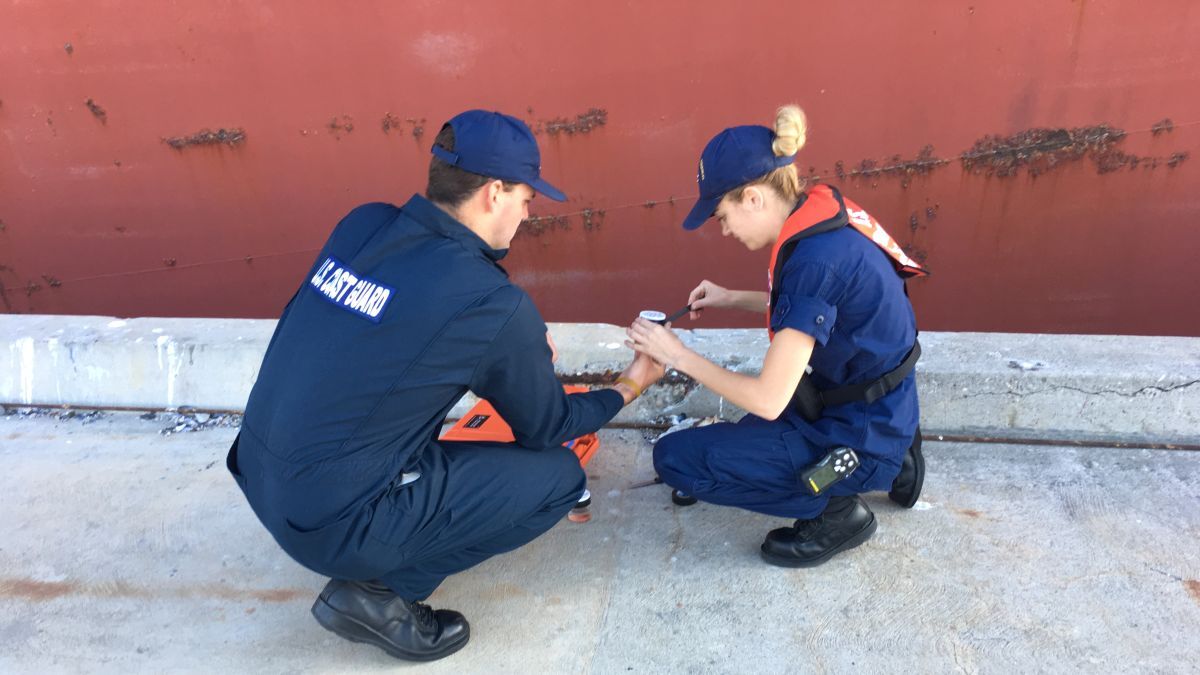 A discernible decrease in BWMS deficiencies was observed in 2023 (source: USCG)
A discernible decrease in BWMS deficiencies was observed in 2023 (source: USCG)
The US Coast Guard’s latest annual report unveils a notable decrease in ballast water deficiencies among vessels trading in United States waters
The US Coast Guard’s Office of Commercial Vessel Compliance has released its eagerly awaited US Port State Control Annual Report for 2023, shedding light on the maritime industry’s compliance landscape regarding regulations such as the Safety of Life at Sea (SOLAS) and the International Convention for the Prevention of Pollution from Ships (Marpol).
Notably, the report reveals a discernible decrease in ballast water management (BWM) deficiencies among vessels trading in United States waters.Despite the multifaceted challenges posed by ballast water management, compliance figures show promising signs.
In 2023, the US Coast Guard (USCG) issued 29% fewer deficiencies for non-compliance compared with the previous year.This trend underscores the concerted efforts by vessel operators and regulatory authorities to address this pressing environmental concern.
Among the vessels inspected, certain types encountered a higher prevalence of deficiencies.Bulk carriers topped the list with 78 instances, followed by chemical tank ships with 33 instances, and container ships with 25 deficiencies.
Petroleum oil tankers, general dry cargo vessels, and ore carriers also faced varying degrees of non-compliance, underscoring the widespread nature of the issue across different sectors.
An analysis of the annual trends in ballast water deficiencies reveals a nuanced picture of the challenges faced.While deficiencies related to ballast water management systems (BWMS) accounted for the majority at 89 instances, deficiencies in reporting to the Captain of the Port and structural concerns also featured prominently, with 30 and 10 instances, respectively.
The USCG’s Enhanced Examination Program (EEP) has emerged as a pivotal tool in addressing non-compliance.
While EEP examinations specifically for ballast water were not conducted in 2023, their impact was evident in the decline of BWMS deficiencies compared with previous years.
Furthermore, the EEP facilitated the identification of unreported inoperable ballast water systems, highlighting the programme’s efficacy in bolstering regulatory oversight.
Looking ahead, the Coast Guard stated it remains committed to tackling ballast water management challenges through continued vigilance and strategic enforcement measures.
USCG Guard’s commander of the Office of Commercial Vessel Compliance, Rear Admiral Thomas Smith said, “The decrease in ballast water deficiencies reflects our collective commitment to environmental stewardship and regulatory compliance within the maritime industry. While challenges persist, proactive measures and collaborative efforts pave the way for a sustainable future.”
Sign up for Riviera’s series of technical and operational webinars and conferences:





